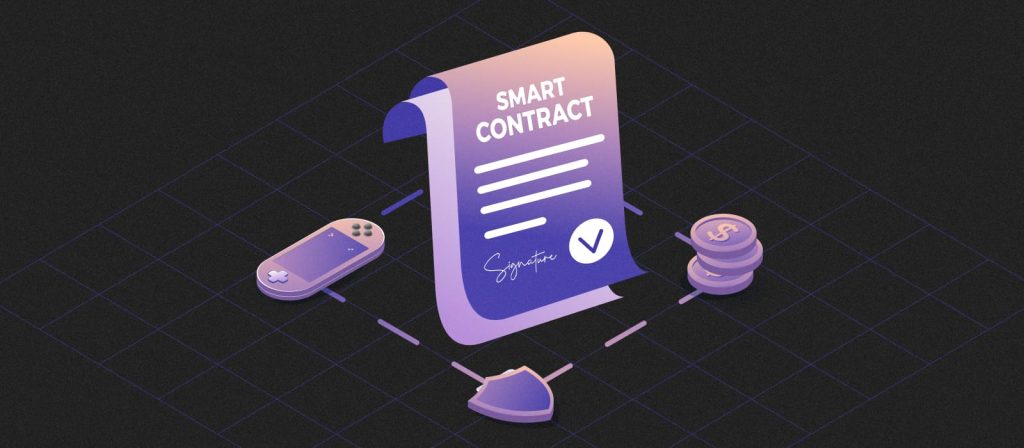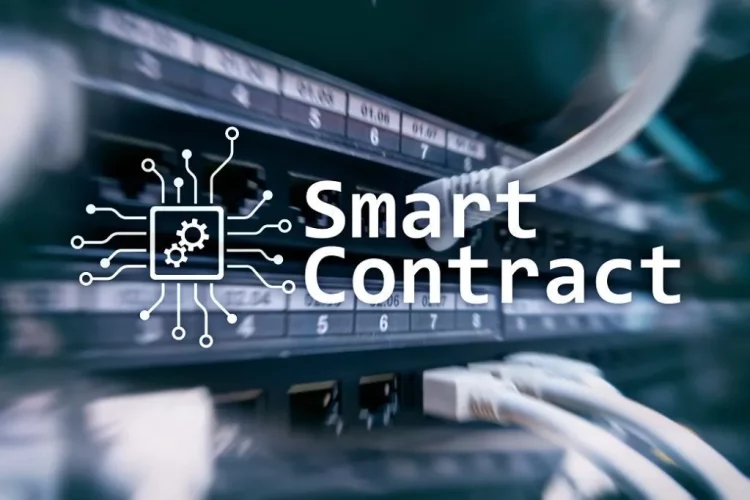Introduction
In the modern business landscape, efficiency, transparency, and security are more important than ever. Traditional business transactions often rely on intermediaries—lawyers, brokers, notaries, and financial institutions—to facilitate agreements, ensure compliance, and execute contracts. These intermediaries, while essential, can introduce delays, added costs, and potential human error. Enter smart contracts, a groundbreaking feature of blockchain technology that is reshaping how business transactions are conducted.
A smart contract is a self-executing contract with the terms of the agreement directly written into code. Once the pre-defined conditions are met, the contract automatically executes and enforces the terms without the need for intermediaries. By leveraging decentralized blockchain networks, smart contracts offer an innovative solution that minimizes friction, reduces costs, and accelerates the entire transaction process.
This article explores how smart contracts are transforming traditional business transactions, how they function, and the tangible benefits they offer to industries ranging from finance to real estate to supply chains.
Section 1: Understanding Smart Contracts
- What Is a Smart Contract?
A smart contract is a program or script stored on a blockchain that automatically executes and enforces the terms of an agreement when certain conditions are met. These contracts are “self-executing,” meaning they don’t require a third party or intermediary to enforce compliance. They operate on blockchain platforms, such as Ethereum, which allow for the automation of business agreements in a trustless, decentralized environment. - How Do Smart Contracts Work?
Smart contracts are composed of code that defines specific conditions and actions. For example, in a business transaction, a smart contract might state that “if Party A pays Party B 100 ETH, then Party B will deliver a product to Party A.” Once Party A sends the payment, the contract automatically verifies the payment and triggers Party B to send the product. The entire process is executed automatically by the contract without manual intervention. The decentralized nature of blockchain ensures that the contract’s terms are immutable and transparent. Once deployed, no one can change the terms without the consent of all participants, and everyone can view the contract’s execution.
Section 2: Traditional Business Transactions: Challenges and Inefficiencies
- The Role of Intermediaries:
In traditional transactions, intermediaries such as banks, lawyers, real estate agents, and notaries play an essential role in verifying and executing agreements. While these intermediaries offer legitimacy and security, they also introduce certain inefficiencies:- Cost: Intermediaries charge fees for their services, adding to the overall cost of the transaction.
- Time: The process of drafting, negotiating, and executing contracts can take days, weeks, or even months.
- Human Error: Mistakes can occur during the contract drafting or execution process, potentially leading to disputes and delays.
- Security Risks: Centralized intermediaries can become targets for hacking or fraud, which could jeopardize the security of the transaction.
- Need for Trust:
In traditional systems, trust is established through intermediaries or established relationships. This often requires the involvement of parties that both sides trust, adding additional layers of complexity and time. Smart contracts eliminate the need for trust in intermediaries by automating execution based on pre-set conditions encoded in the contract, thus creating a more trustworthy system through transparency and cryptographic security.
Section 3: Benefits of Smart Contracts in Business Transactions
- Cost Reduction:
One of the most significant benefits of smart contracts is the reduction of transaction costs. By eliminating the need for intermediaries—such as lawyers, notaries, and brokers—businesses can save on service fees. The automation of contract execution also removes administrative overhead, reducing the labor costs associated with manual processes. - Increased Efficiency and Speed:
Smart contracts are executed automatically once the conditions are met. This streamlines processes and accelerates transactions, cutting down the time spent on contract review, negotiation, and execution. For example, a cross-border payment between businesses that would typically take days due to intermediary banks can be executed in minutes via a smart contract. - Improved Transparency:
Since smart contracts operate on a blockchain, all transactions and contract terms are recorded on a public ledger. This transparency allows all parties to verify the status of the contract and ensures that all conditions are met before execution. Disputes and misunderstandings are minimized, as everyone has access to the same information. - Security and Immutability:
Blockchain technology provides a secure, tamper-proof environment for smart contracts. Once deployed, the terms of the contract are immutable and cannot be altered without the consensus of all parties involved. This makes it much harder for malicious actors to manipulate the contract or its execution. - Automated Enforcement:
Traditional contracts often require manual enforcement of terms, which can lead to delays or disputes. In contrast, smart contracts automatically execute actions once the conditions are satisfied, reducing the chances of non-compliance. For example, in the case of a supply chain agreement, the delivery of goods is automatically triggered when payment is confirmed, ensuring timely execution.
Section 4: How Smart Contracts Are Changing Various Industries
- In Finance:
- Decentralized Finance (DeFi): Smart contracts are at the heart of decentralized finance, enabling peer-to-peer financial services like lending, borrowing, and trading without the need for traditional banks. For example, smart contracts can automate lending agreements, where the borrower’s collateral is automatically returned once the loan is repaid.
- Tokenization of Assets: With smart contracts, real-world assets like real estate or art can be tokenized, allowing businesses to fractionalize ownership and create new ways of investing and trading. These tokenized assets can be bought or sold instantly using smart contracts, eliminating brokers and reducing transaction fees.
- In Real Estate:
Smart contracts are transforming the real estate industry by automating property transactions. When purchasing a property, smart contracts can automatically verify the title, facilitate the payment process, and even transfer ownership once all conditions are met (e.g., the buyer pays the seller). This reduces the need for real estate agents, notaries, and other intermediaries, streamlining the transaction process. - In Supply Chain Management:
Smart contracts can ensure transparency and accountability in supply chains by automatically triggering payments and actions once goods reach specific checkpoints. This makes it easier to track products from manufacturer to consumer while ensuring that all conditions are met, such as quality checks or delivery deadlines. - In Insurance:
Smart contracts can automate claims processing in insurance. For instance, in travel insurance, a smart contract can automatically trigger a payout if a flight is delayed by a certain number of hours. The contract can verify the conditions using data from trusted oracles (third-party data providers), eliminating delays and administrative overhead. - In Intellectual Property (IP) Management:
Smart contracts offer a new way to manage intellectual property rights. Creators can encode licensing agreements into smart contracts, ensuring automatic payments for the use of their work. These contracts can also be used to track usage, verify ownership, and ensure that copyright holders receive fair compensation for their intellectual property.

Section 5: Challenges and Considerations for Smart Contracts
- Legal Recognition and Compliance:
While smart contracts are self-executing, they still face legal challenges. The legal systems of many countries do not yet fully recognize smart contracts as legally binding agreements. Businesses must ensure that their use of smart contracts complies with relevant laws and regulations. - Coding Errors and Vulnerabilities:
Smart contracts are only as reliable as the code they are written in. Bugs or vulnerabilities in the code can lead to unintended consequences, such as the loss of funds or incorrect execution. Rigorous testing and auditing are essential before deploying smart contracts in real-world applications. - Interoperability:
Different blockchain platforms may have different protocols, and smart contracts on one platform may not be easily transferable to another. Interoperability between blockchain networks is an ongoing challenge that may limit the scalability of smart contracts. - Oracle Problem:
Smart contracts rely on external data sources, called “oracles,” to trigger actions based on real-world events (e.g., the price of a stock, weather conditions, or flight delays). If the oracle provides incorrect or manipulated data, the smart contract’s execution may be compromised. Ensuring the reliability and security of oracles is crucial for the success of smart contracts.
Section 6: The Future of Smart Contracts
- Widespread Adoption:
As blockchain technology matures, the adoption of smart contracts is expected to expand across multiple industries. With advancements in scalability, legal recognition, and interoperability, smart contracts could become the standard way of conducting business transactions. - Integration with Emerging Technologies:
Smart contracts are likely to be integrated with other emerging technologies like Artificial Intelligence (AI), the Internet of Things (IoT), and big data analytics. This combination can enable even more sophisticated and automated business processes, from autonomous supply chains to AI-driven financial trading. - Regulatory Clarity:
For smart contracts to achieve mainstream adoption, governments and regulatory bodies must provide clear legal frameworks and guidelines. As regulatory clarity improves, businesses will feel more confident in adopting smart contracts for a wide range of applications.
Conclusion
Smart contracts have the potential to fundamentally change the way businesses operate by removing intermediaries, enhancing security, increasing transparency, and streamlining operations. From financial transactions to real estate deals and supply chains, the automation and efficiency offered by smart contracts are reshaping industries and opening new possibilities for innovation.
While challenges remain, including legal recognition and potential vulnerabilities, the ongoing development of smart contract technology and its increasing adoption point to a future where traditional business transactions are vastly more efficient, secure, and cost-effective. As smart contracts continue to evolve, they will play an essential role in the transformation of business practices worldwide, enabling a new era of decentralized, automated, and trustless commerce.
















































